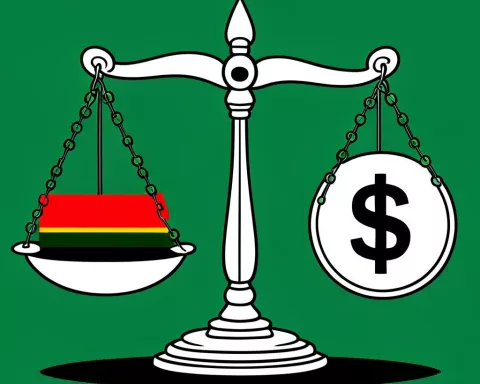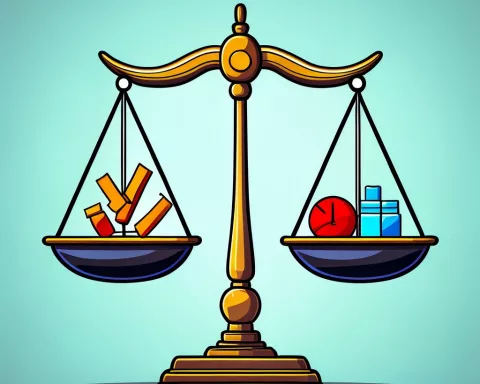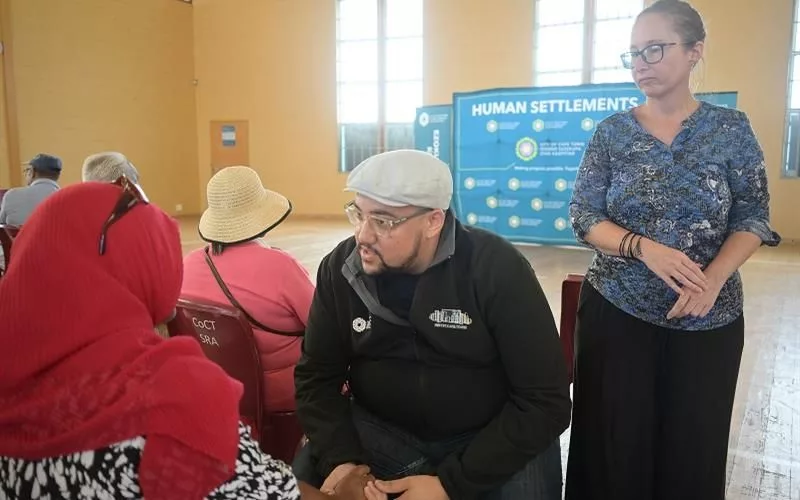The future of social grants in South Africa is a crucial issue as over 28 million citizens benefit from them, and the ruling ANC government spends an estimated R253 billion annually on the grants. Opposition parties have made pledges to retain and increase the grants, but their execution depends on multiple factors. The stakes are high, considering the significant impact on the livelihoods of millions of South Africans, and the issue has become a compelling story in South African politics.
What is the future of social grants in South Africa?
The future of social grants is a crucial issue in South African politics, given that over 28 million citizens benefit from them. The ruling party, ANC government, spends an estimated R253 billion annually on the grants. Opposition parties, such as the EFF, DA, and others, have made pledges to retain and increase the grants, but the execution of these promises depends on multiple factors. The stakes are high, considering the significant impact on the livelihoods of millions of South Africans.
Section 1: The Politics Surrounding South African Social Grants
The South African Social Security Agency (SASSA) social grants have become a hot topic in the powerful and dynamic political environment of South Africa, particularly in light of the forthcoming 2024 elections. Over 28 million South Africans currently benefit from these grants, making their future a central issue.
The controversy was sparked off by President Ramaphosa at an African National Congress (ANC) event earlier this year. He warned that the continuity of the SASSA grants would be at risk if the ruling party was not returned to power in 2024. The ANC government currently spends an estimated R253 billion every year to maintain the grants, a major part of their policies aimed at reducing poverty.
The mere thought of losing this deeply embedded financial lifeline is unthinkable to many South Africans. Therefore, any political party or alliance that dares to eliminate these grants would face substantial public outrage. With his statement, President Ramaphosa effectively shifted the focus to the other parties, compelling them to clarify their position on the issue.
Section 2: Opposition Parties’ Response to SASSA Grants
The Economic Freedom Fighters (EFF), a substantial opposition party, were swift in their rebuttal. They not only committed to preserving the SASSA grants if they came to power, but they also went a step beyond by promising to double the grants. This bold pledge was made by Julius Malema, the EFF leader, at their party’s manifesto inauguration. He, however, did not elaborate on how his party would cover the estimated R500 billion social welfare expenditure that would result from doubling the SASSA grants.
The Democratic Alliance (DA), another influential party, took a more cautious approach. They pledged to retain the SASSA grants if they rose to power, and unequivocally declared that “social grants are a constitutional right.” They also dispelled any chatter about grant cuts by deeming such talk as ‘blatantly untruthful and deceptive.’
In terms of specific strategies, the DA has stated that they would raise the Child Support Grant from R510 a month to R760. They also expressed a favorable view towards a Basic Income Grant, adding the caveat that it would only be feasible if economic growth made it affordable.
Section 3: Pledges from Other Parties and Reality Check
Other parties, including the IFP (Inkatha Freedom Party) and Herman Mashaba’s ActionSA, have also promised to keep and possibly increase the SASSA grants. ActionSA even extends its promise to establish a Basic Income Grant. Rise Mzansi, too, has spoken in favor of income grants and proposed additional measures like food vouchers for grant recipients.
However, one must remember that the political arena is filled with grand pledges, but these are often part of the pre-election dramatics. The execution of these promises depends upon multiple factors such as economic feasibility, the political will, and the overall socio-economic context of the country.
Section 4: High Stakes and The Future of SASSA Grants
It’s critical to highlight the sheer number of South Africans who depend on these SASSA social grants. The potential impact on such a large number of livelihoods makes the stakes incredibly high. As the populace and the world keep a close eye on the unfolding events, the future of these grants has become a compelling story in South African politics.
1. Why are social grants a crucial issue in South African politics?
Social grants are a crucial issue in South African politics because over 28 million citizens benefit from them, and the ruling ANC government spends an estimated R253 billion annually on them. The future of these grants has become a compelling story in South African politics as the stakes are high, considering the significant impact on the livelihoods of millions of South Africans.
2. What is the political response to the future of SASSA grants?
Opposition parties, such as the EFF, DA, and others, have made pledges to retain and increase the grants. The EFF has pledged to double the grants, while the DA has pledged to retain them and raise the Child Support Grant. Other parties, including the IFP, ActionSA, and Rise Mzansi, have also promised to keep and possibly increase the grants.
3. What factors determine the execution of these political promises?
The execution of these promises depends upon multiple factors such as economic feasibility, the political will, and the overall socio-economic context of the country. While political parties make grand pledges during election campaigns, the reality of implementing these promises can be complicated.
4. What did President Ramaphosa say about the continuity of SASSA grants?
President Ramaphosa warned that the continuity of the SASSA grants would be at risk if the ruling party was not returned to power in 2024. The ANC government currently spends an estimated R253 billion every year to maintain the grants, a major part of their policies aimed at reducing poverty.
5. What is the DA’s view on social grants?
The DA has pledged to retain the SASSA grants and sees them as a constitutional right. They have also expressed a favorable view towards a Basic Income Grant, adding the caveat that it would only be feasible if economic growth made it affordable. The DA has also pledged to raise the Child Support Grant from R510 a month to R760.
6. Why are the stakes high for the future of SASSA grants?
Over 28 million South Africans currently benefit from these grants, making their future a central issue. The potential impact on such a large number of livelihoods makes the stakes incredibly high. As the populace and the world keep a close eye on the unfolding events, the future of these grants has become a compelling story in South African politics.












